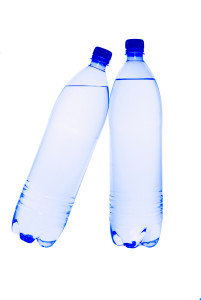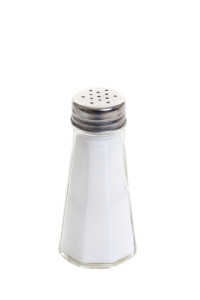Why are fluid and salt restrictions so important for pulmonary hypertension patients?
Pulmonary hypertension causes the body to hold onto excess fluid. This is a big problem because the strained right ventricle of the heart cannot handle an increased volume in blood. The fluid builds up and causes edema (swelling in the ankles and legs), increased shortness of breath, fatigue, and sometimes chest discomfort. Reducing salt and fluid intake will help relieve water build up in the body and help a pulmonary hypertension patient feel better. Each patient is different so check with your pulmonary hypertension specialist about your restrictions.
Two gram salt restriction
It is common for pulmonary hypertension patients to be instructed to eat low salt diets or to consume less than two grams of salt per day. It may be hard to do in the beginning but your body will slowly get used to the new diet and you will crave salt less over time. It may be helpful for the whole family to adopt the same diet so there won’t be too many temptations for the person with pulmonary hypertension. There are some simple steps that are helpful in reducing salt intake. First, throw out the salt shaker, if it isn’t available you can’t use it. Second, read food labels. Some foods are surprisingly high in salt and you won’t know until it’s too late if you don’t read the label.
Two liter fluid restriction
Many pulmonary hypertension patients are instructed to restrict their total fluid intake to less than two liters or  2000cc per day. Reducing the fluid a patient takes in will help avoid swelling and fluid retention. Many patients are often surprised to find out they can actually drink too much water as they have been instructed that drinking lots of water is the key to staying healthy. It isn’t just water that needs to be measured but anything that is liquid at room temperature like gelatin, ice, soda, and coffee. It is helpful to always drink out of the same sized cup and know how many of those cups equals 2 liters. This will help you gauge how much fluid you have had and how much more you can have for the rest of the day and plan accordingly. Many patients take diuretics to help reduce fluid retention but it is still important to follow the fluid restriction recommended by the physician.
2000cc per day. Reducing the fluid a patient takes in will help avoid swelling and fluid retention. Many patients are often surprised to find out they can actually drink too much water as they have been instructed that drinking lots of water is the key to staying healthy. It isn’t just water that needs to be measured but anything that is liquid at room temperature like gelatin, ice, soda, and coffee. It is helpful to always drink out of the same sized cup and know how many of those cups equals 2 liters. This will help you gauge how much fluid you have had and how much more you can have for the rest of the day and plan accordingly. Many patients take diuretics to help reduce fluid retention but it is still important to follow the fluid restriction recommended by the physician.
How will I know if I am having fluid retention?
Pulmonary hypertension patients will be instructed to weigh themselves daily as weight gain is often one of the first signs of fluid retention. If the patient gains 3 or more pounds or gains weight steadily over 3 or more days they should call their pulmonary hypertension specialist. Often medications can be used to safely take three pounds of water weight off with the patient at home. If the patient waits until they are having other signs and symptoms of fluid retention such as increased shortness of breath or swelling of the ankles and legs they have often gained 10 or more pounds. The more fluid retention a patient has the harder it is to take the water off as an outpatient and hospitalization may be required. So don’t delay, make the call early on.

